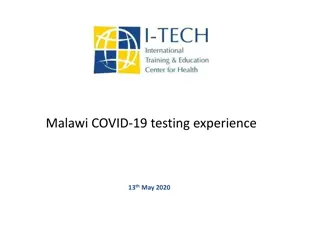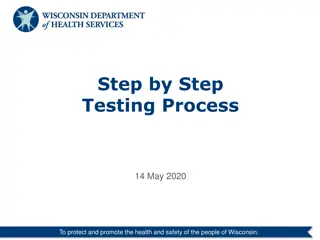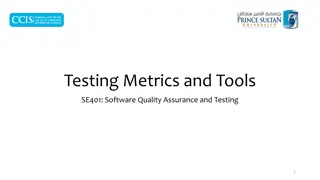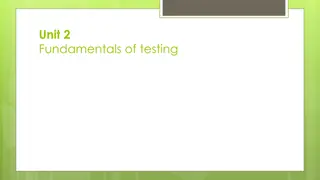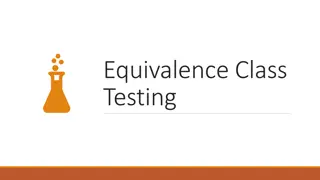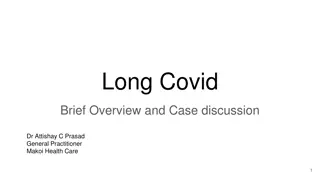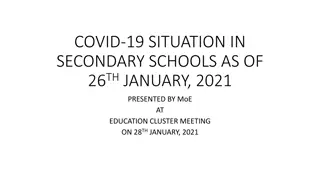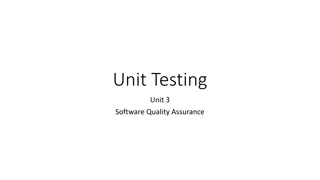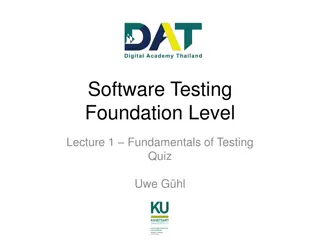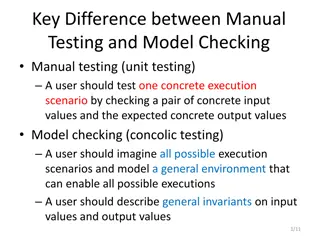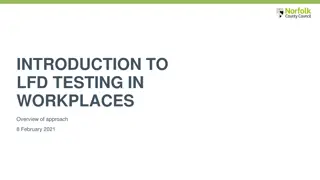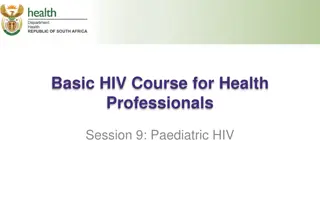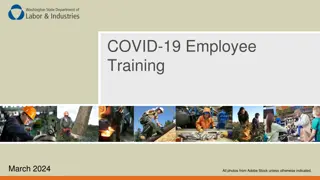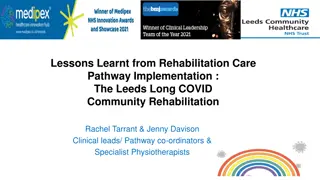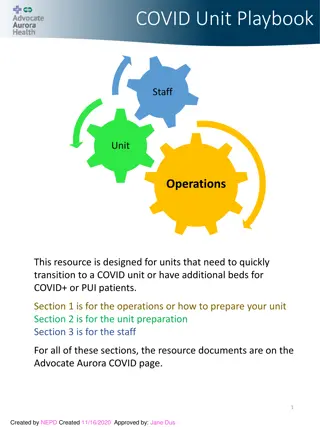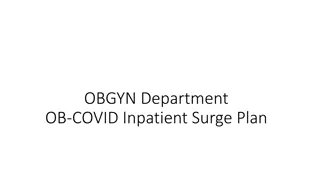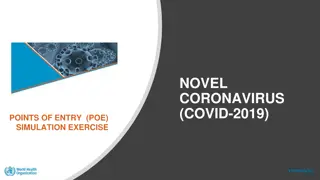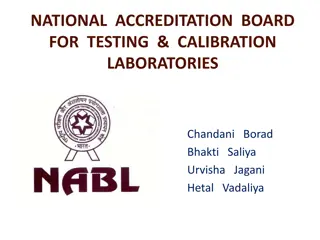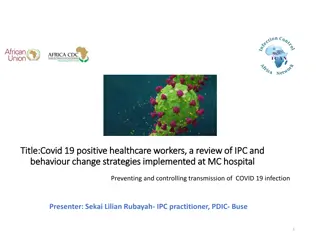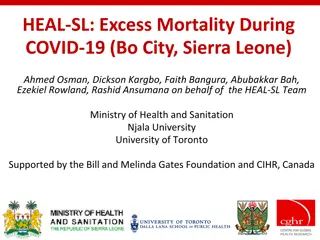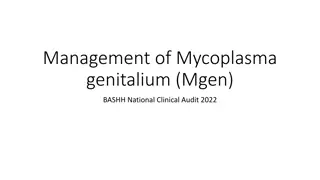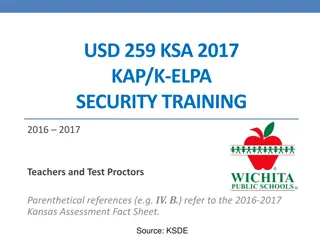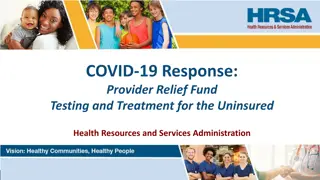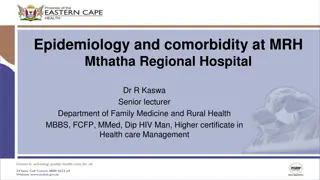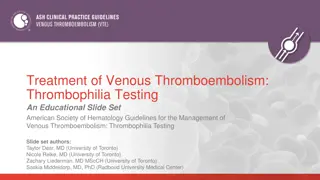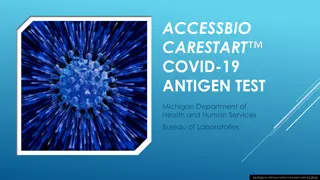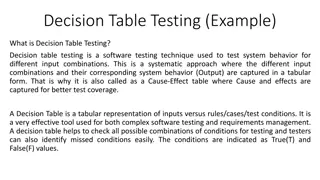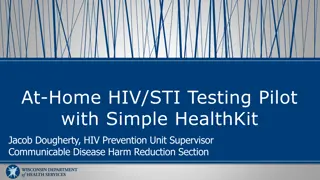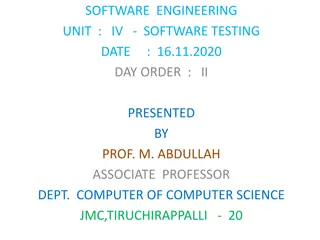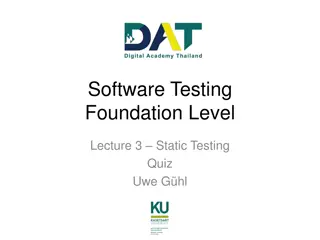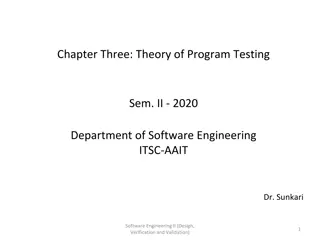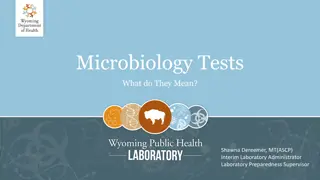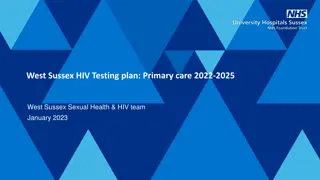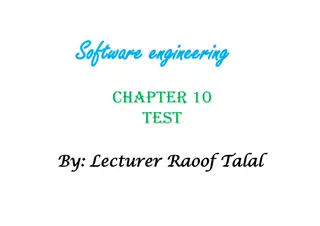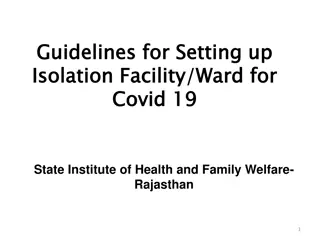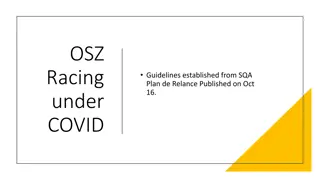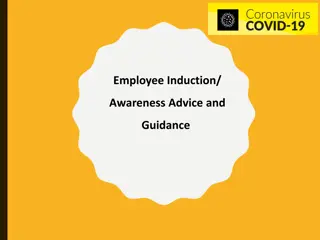Guidelines for COVID-19 Testing in Children
Information on testing for COVID-19 in children, including symptoms to watch out for, when to suspect COVID-19 in a child, when to get a child tested, and recommendations for testing in cases of comorbidities. Details on recommended tests, including Rapid Antigen Test and RT-PCR, along with the importance of early detection and isolation.
Download Presentation

Please find below an Image/Link to download the presentation.
The content on the website is provided AS IS for your information and personal use only. It may not be sold, licensed, or shared on other websites without obtaining consent from the author. Download presentation by click this link. If you encounter any issues during the download, it is possible that the publisher has removed the file from their server.
E N D
Presentation Transcript
Fever, headache, myalgia, fatigue, tiredness, runny nose, Cough, sore throat, rapid breathing Diarrhea, vomiting, abdominal pain Poor feeding in an infant, loss of taste or smell (>8 Yrs) Rash, conjunctival congestion, mucositis, shock Asymptomatic but has a close/ household contact When to suspect COVID 19 in a child?
Get your child tested for COVID- 19 if: When should I get my child tested for COVID-19? Family members, that your child has been in contact with, test positive for COVID-19. Your child has symptoms of COVID-19. Your child has a fever that has continued beyond three days.
Recommended for all the suspect cases Prior to any procedure/ hospitalization Can be deferred for asymptomatic if no testing resources available Children with comorbidities and contact must be tested If not tested but has mild symptoms and known contact with a positive family member, then should be presumed to be COVID 19 positive and managed appropriately When to test Comorbidities: - Chronic kidney disease congenital heart disease, chronic liver disease, severe malnutrition, current malignancy, immunocompromised state, juvenile diabetes
Test as soon as possible after onset of symptoms Rapid Antigen Test ( RAT) in nasopharyngeal swabs Low sensitivity so if negative , RT-PCR should be done RT-PCR in nasopharyngeal +/- oropharyngeal swabs SARS CoV-2 antibodies also if features of MIS-C Children with symptoms suggestive of COVID-19 but negative RT-PCR test, should undergo repeat RTPCR and evaluated for other illnesses If symptoms are protracted and RT-PCR is negative, CT chest may be done. If not alternative diagnosis, treats as if COVID 19 positive Which tests to do
Rapid Antigen Tests (RATs) Recommended in India for COVID-19 testing in June 2020. Short turn-around time: 15-30 minutes Advantage of quick detection of cases Helps in isolating and treating cases early Helps in curbing transmission
Testing Algorithm - RAT Rapid Antigen Test (RAT) Positive (irrespective of symptomatic status) Negative To be treated as positive and all precautions should be followed immediately Symptomatic Asymptomatic If individual is symptomatic later then RAT or RT-PCR Send sample for RT- PCR
Points to Remember - RATs Symptomatic individuals identified positive by RAT should not be re- tested and advised to go through home-based care. Symptomatic individuals identified negative by RAT should be linked with RTPCR test facility and in the meantime be urged to follow home isolation and treatment.
RT-PCR Testing Helps identify infection in a person Common sites for sample Back of the nose and throat Single RT-PCR positive test Confirmatory No repeat testing.
Testing Algorithm RT-PCR RT-PCR Negative Positive If symptoms develop following a negative RAT test, a repeat RAT or RT- PCR should be done. All precautions should be followed immediately (irrespective of symptomatic status) No infection detected
Points to Remember RT-PCR RTPCR test must not be repeated in any individual who has tested positive once either by RAT or RTPCR. No testing is required for COVID-19 recovered individuals at the time of hospital discharge in accordance with the discharge policy of MoH&FW
Points to Remember Reporting of the Test The vaccination status of all individuals tested for COVID-19 must be entered into the Sample Referral Form (SRF) in the RTPCR app both for individuals tested by RTPCR and RAT. This information is of critical importance. All RTPCR and RAT test results should be uploaded on ICMR portal at: https://cvstatus.icmr.gov.in.
What should I do if my child tests positive for COVID-19? The testing team will explain to you what to do If the symptoms are mild, you will be asked to take your child home and follow home isolation. The ASHA and MPW will follow up with you If you are unable to isolate the child at home, you can put him/her in the Covid Care Centre at the PHC level Moderate and severe cases will be admitted into special care hospitals at the CHC or district level as advised by the medical officer.






